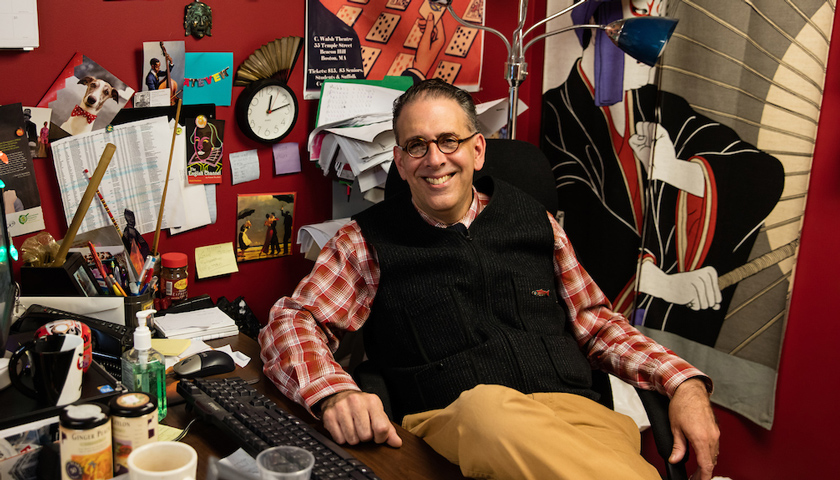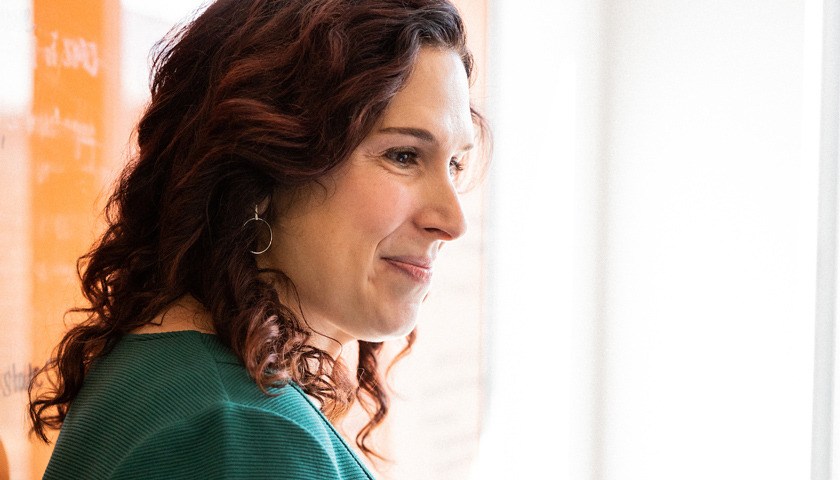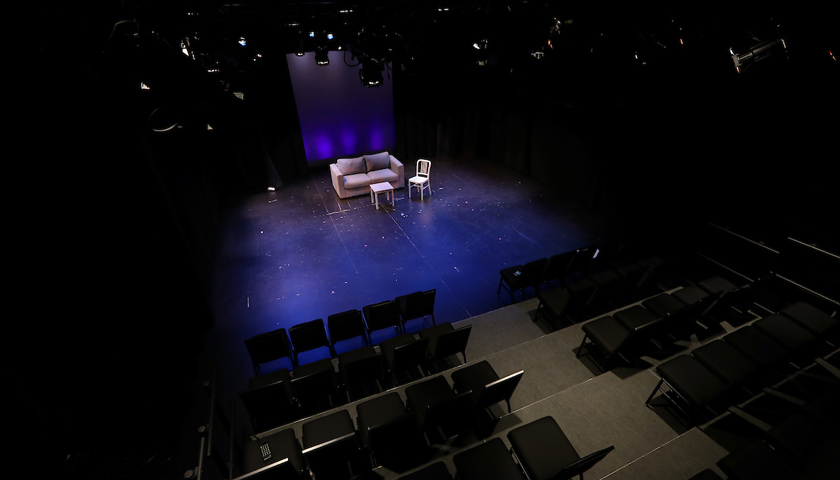The Humanities Respond to the Pandemic
In the battle against the COVID-19 pandemic, academics and professionals in fields ranging from medicine and life science to economics and logistics have thrown themselves into the fray, searching for ways to stem the tide of the disease. We often turn to leaders in such fields to manage crises and find treatments and cures. But what of scholars and practitioners in the humanities—the artists, writers, and thinkers whose contributions in a time of crisis might not immediately be obvious?
Far from sitting on the sidelines and waiting for the world to return to normal, or assume the shape of a new normal, Suffolk writing and theatre faculty are using the pandemic as a teachable moment and bringing their varied expertise to bear in the effort to improve society’s resilience in the face of the current health crisis.
Chronicling the "Current Moment"

When it was announced that classes would be taught remotely for the remainder of the semester due to the COVID-19 pandemic, Theatre Professor Wes Savick was at a loss. His discipline was by definition in-person and immediate. How would he adapt his teaching to an online medium?
For his playwriting class, he did it by shifting the entire focus of the curriculum to something he refers to as the "current moment," asking his students to use their writing to explore firsthand the experience of the pandemic.
"I believe it is very important for theatre to respond to the world we live in," Savick told his students. "There will be many people chronicling the politics and science, the data and announcements, the statistics and the economics of the current moment; but it is up to you, the playwrights, to chronicle the feelings, the hopes, the spirit, the poetry."
Observing and interpreting this kind of information as it happens is crucial, Savick believes, to an accurate comprehension of the past, once the current moment passes into history. So, he assigns weekly writing projects to his students via email, with instructions to share them among themselves when finished, in preparation for discussing them on a weekly videoconference.
"In a year, when we're looking back on this," he says, "I'm betting that most people are going to simplify it and say, 'That was a time when we were very scared.' And scared is part of it, but far from all of it. If you're paying attention to what's happening, rather than what's going to happen, you're actually preserving the experience of going through this thing."
Curricular Coincidences

English Professor Amy Monticello, director of the Seminar for Freshmen, views the role of writers during a crisis in much the same light as Savick does.
“When large-scale events happen—a pandemic, a war, an economic depression—the humanities attempt to track their impact on our behavior, our institutions, our values, and our relationships to one another,” says Monticello. “We turn to books, historical studies, philosophical frameworks, and artistic expressions to locate our own and others’ experiences and find insights that help us make sense of what’s happening.”
Monticello was teaching a course titled “Narrative and Medicine” when the COVID-19 pandemic forced the closure of Suffolk’s campus. Suddenly she and her students found the class freighted with new and very immediate significance.
“We just happened to be reading Eula Biss' book-length study of vaccination, On Immunity, at the time,” Monticello says. The book covers topics that have become extremely timely, from vaccination to the social and political implications of “herd immunity” to the social contracts upheld or abandoned during outbreaks of disease.
“The students have written reflectively about Biss' ideas as they pertain to COVID-19,” says Monticello. “Some of them plan to write about their quarantine experiences in our capstone project, which is a medical narrative. This application was totally accidental—On Immunity was a required textbook from the start.”
The Emergence of Empathy
Wes Savick has been struck in his recent weeks of online teaching by the reactions of his students, he says.
"There were quite a few things that were coming out. The anxiety of course, but also guilt. Like, 'What if I'm carrying something that could kill my grandparents?' And, of course, anger and resentment. I really feel for these students, because they're encountering colossal loss.”
That loss of regular educational structure and experience, in comparison to the much graver loss of health or life, may strike some as a privileged kind of loss, Savick concedes, and many of his students recognize. Yet in their weekly video discussions and critiques, a new empathy has emerged among students as they share their interpretations of the current moment.
“Playwrights provide a sense of relief that you're not the only one who feels this way,” Savick says, “kind of an affirmation that you're not alone. Right now, that feeling is part of the collective experience: everyone feels alone. And quite a few times the students will, in commenting on each other's work, say, ‘You really captured what I felt. I didn't even know I felt that way until I heard your piece.’”
For her part, Monticello has been similarly impressed by her students’ generosity of spirit. Because so many of them are now scattered across time zones throughout the country and the world, she’s decided that an asynchronous approach works best, forgoing videoconferences in favor of online postings and interaction via the Blackboard platform.
“Some have expressed missing our class discussions and wish we were doing synchronous meetings, but they also understand the need to accommodate fellow classmates,” says Monticello. “I'm not surprised by their flexibility or kindness, but I am surprised by the quality of conversation they're having in their groups on Blackboard. Reading their supportive, encouraging, and intellectually rigorous discussions is one of the most heartening things about this new experience.”
The Theatre Lives On, Online

Suffolk theatre students faced some devastating losses when rehearsals and spring performances were canceled due to the COVID-19 pandemic. But Suffolk faculty have found creative ways to make this semester matter for their performing arts students.
- The department is scheduling one-on-one digital coaching and mentoring sessions for students with guest directors like Maurice Parent, who had been slated to direct this spring’s performance of the musical Violet.
- Professor Laura Shink’s students will read scenes from Theresa Rebeck’s Seminar online. Rebeck, an award-winning writer whose work has been produced on and off Broadway, has accepted an invitation to the reading, which she will discuss with students afterward.
- Senior Stephanie Coyle will present a performance of Harold Pinter’s play The Lover online using the Zoom videoconferencing platform on Friday, April 10.
Media Contact
Greg Gatlin
Office of Public Affairs
617-573-8428
[email protected]



